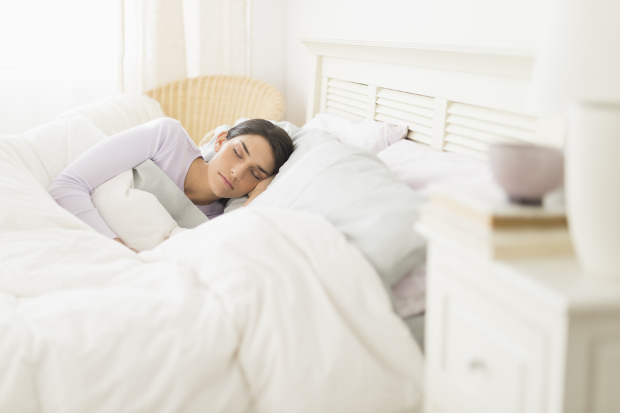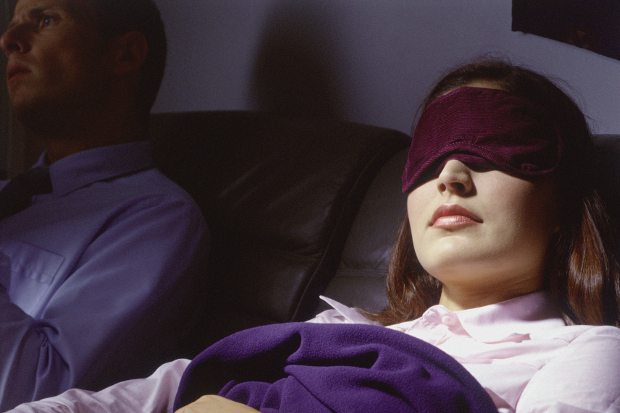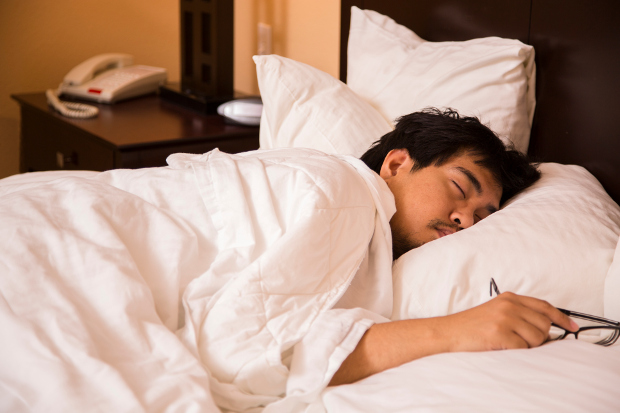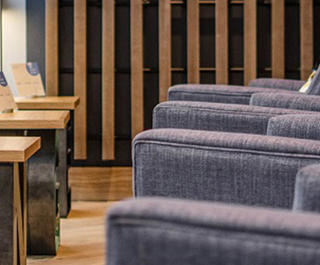Words by Carlie Tucker
At one point or another, frequent travellers find themselves longing for home. Chances are it's usually at 3am with eyes wide open as you stress about the fact that you just can't sleep, wishing you were snuggled down in your own bed where sleep would never elude you this way.
Being on the road can wreak havoc on your sleep schedule, which is why we've put together a few simple tips on how you can get some rest while on the road. They can also be utilised at home, just in case you should run into a sleepless night from the comforts of your own bed.

Home
Get in tune with your sleep schedule: Known as your circadian rhythm, your body has a natural sleep/wake cycle. Staying in sync with this cycle is one of the best ways to ensure you have a good night's sleep no matter where you are. Recognise when you're tired, set a bedtime and wake up at the same time every day. And, most importantly, stick to it!
- Tip: If you're travelling internationally, you can adjust your sleep cycle to prepare your body for the new time zone to help stave off jet lag. A few days before your trip, set a new bedtime in-line with your destination and stick to it through your trip.
Diet and exercise: 20 to 30 minutes of exercise everyday helps to improve your sleeping habits. This doesn't necessarily mean hitting the gym hard for a big training session early in the morning. You can split it up over the course of the day, or schedule an afternoon walk. Just make sure you get up and get moving. As for diet, make sure you avoid big meals at night, cut down on caffeine and avoid drinking too many liquids in the evening. All can contribute to restlessness when it comes time to sleep.
Employ the right technique: If you find you have trouble sleeping on the road or at home, utilising relaxation techniques is a great way to let the body unwind and prepare for sleeping. Easy to do, these techniques include deep breathing and muscle relaxation routines. It's also helpful to close your eyes and think of a place or activity that you find relaxing. Before you know it, you'll be nodding off to dreamland.

Airplane
Dress Right: It can be a struggle to fall asleep on a plane, but wearing the right clothes is a good step in achieving rest while you fly. Skip tight, restrictive clothes that are going to make you uncomfortable in your seat. Choose a loose fitting outfit made of natural fibres that breathe. Also opt for layers that you can put on or take off depending on how warm/cold you are.
Pack Right: If you want to increase your chances of sleeping on a plane, you may want to review what you have in your carry-on. Creating a sleep kit is a great way to boost your comfort while you're in the air. Packing things like a travel pillow, light blanket and eye-mask is a great way to help yourself get comfy and fall asleep.
Light and sound: Two of the biggest distractions when it comes to catching a few Zs on the plane, you must be able to control your exposure to light and sound. When it comes to light, make sure you pull your window shade down and put on your eye mask. Alternatively, pull your blanket over your head for a little extra privacy.
When it comes to sound, you have a couple options. If you prefer silence, a good pair of earplugs is worth investing in to block out the noise of the plane. Alternatively, noise cancelling headphones are perfect for those that love to fall asleep to ambient sounds or soft music.

Hotels
Do your homework: One of the best things you can do when it comes to getting good sleep in a hotel is a little research. Before you book any hotel, look up some reviews online, or ask your Travel Manager if they can make a recommendation. Not only do you want amenities to suit your needs, but you want a good bed with quality bedding. There's nothing worse than a hard bed and flat pillow when you're struggling to fall asleep.
Maintain your routine: When you're at home, you probably have a routine that you carry out right before bed that helps you relax. Don't break that habit while you're on the road. Whether it's as simple as brushing your teeth and jumping into bed, or involves specific items such as a pair of extra comfy slippers, make sure you stick to it while you're on the road. It's a good subconscious cue for your mind and body. Plus, you don't want to be laying in bed unable to sleep because you feel like you forgot to do something important.
Develop sleep zones: It can be tempting to sit in bed in a hotel and finish up those last few items of the day, but this can detrimental to your sleep routine. Especially if you normally have trouble falling asleep. The bed should only be used for sleeping so that your brain doesn't start to associate it with unfinished work.









